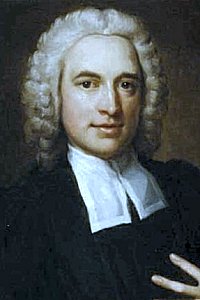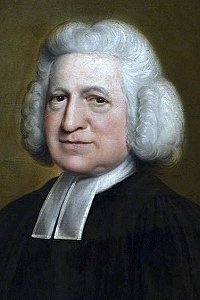Introduction

Born: December 18, 1707, Epworth, Lincolnshire, England.
Died: London, England.
Buried: East Finchley Cemetery, London, England.


Born: December 18, 1707, Epworth, Lincolnshire, England.
Died: London, England.
Buried: East Finchley Cemetery, London, England.

Charles was the son of Samuel Wesley and Susanna Annesley, brother of John Wesley, and husband of Sarah Wesley.
Charles wrote over 6,000 hymns, and, as with most hymnists, his works were frequently altered. In the preface to the 1779 Collection of Hymns for the Use of the People Called Methodists, his brother John wrote:
I beg leave to mention a thought which has been long upon my mind, and which I should long ago have inserted in the public papers, had I not been unwilling to stir up a nest of hornets. Many gentlemen have done my brother and me (though without naming us) the honour to reprint many of our hymns. Now they are perfectly welcome to do so, provided they print them just as they are. But I desire they would not attempt to mend them, for they are really not able. None of them is able to mend either the sense or the verse. Therefore, I must beg of them these two favours: either to let them stand just as they are, to take things for better or worse, or to add the true reading in the margin, or at the bottom of the page, that we may no longer be accountable either for the nonsense or for the doggerel of other men.
In addition to hymn writing, Charles and John founded the movement which became the Methodist denomination.
For some hymns, there is uncertainty on whether Charles or John was the author. John Julian, page 1280, says:
It must be noted that the Wesleyan authorities, in the revised edition of their Coll. of Hys. for the Use of the People called Methodists, 1875, decline to distinguish the hymns which appeared in the joint works of the two brothers. They say:—
The letter W. is affixed to those hymns which first appeared in publications for which the Wesleys were jointly responsible; in this case it cannot be determined with certainty to which of the two brothers a hymns should be ascribed.It has been the common practice, however, for a hundred years or more, to ascribe all translations from the German to John Wesley, as he only of the two brothers knew that language; and to assign to Charles Wesley all the original hymns except such as are traceable to John Wesley through his Journals and other works. In this Dictionary this course has been adopted throughout.
’Tis I—That Died for Thee